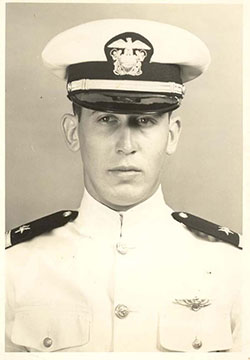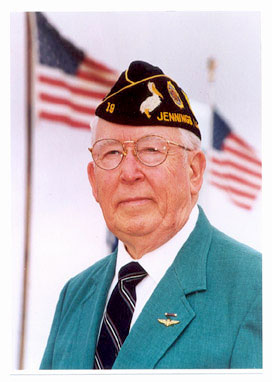
Established April 14, 1942
 |
American Ex-Prisoners of War
A not-for-profit, Congressionally-chartered veterans’ service organization advocating for former prisoners of war and their families.
Established April 14, 1942 |


Minos D. Miller in uniform
|

Minos D. Miller
|
|
| Last Name | First Name, Middle Init. | Nickname |
| Street Add. | City | State |
| Zip | Spouse | |
| Conflict | Branch of Service | Unit: |
| Theatre of Operation | Military Job | Where Captured |
| Date Captured | Time Interned | Camps |
| Date Liberated | Medals Received | Age at Capture |
| After the War ... | ||
His college studies were interrupted by World War II when he volunteered for the U.S. Navy. Obtaining the rank of lieutenant, he flew U.S. Navy Hellcat fighter planes off the Ranger, Saratoga and Wasp fleet carriers.
On a predawn combat mission over Formosa on Jan. 3, 1945, he was shot down by anti-aircraft fire and subsequently became a Japanese prisoner of war.
Following military service, in 1953 Miller was elected judge of Louisiana's 31st Judicial District. He desegregated the Jefferson Davis and Allen parishes' jury commissions and their respective courthouses, pre-dating the U.S. Supreme Court's Brown decision. He served on the Louisiana Supreme Court by special appointment, served on the Louisiana Law Institute and was president of the Louisiana District Judges' Association. He was also elected to the Louisiana 3rd Circuit Court of Appeal.
His wife, Ruth Loyd Miller, achieved recognition as an authority in the literary debate over the authorship of the works of William Shakespeare, as a proponent of the theory that Edward de Vere, the 17th Earl of Oxford, was the true author of the Shakespeare canon.
The Millers raised three children, a daughter and two sons.
Judge Miller was active in civic, charitable and church organizations. He was a member of the Veterans of Foreign Wars and a commander of an American Legion post.